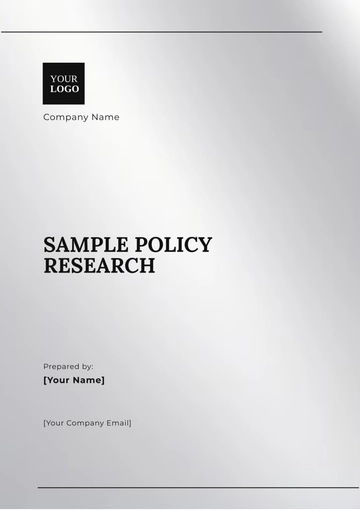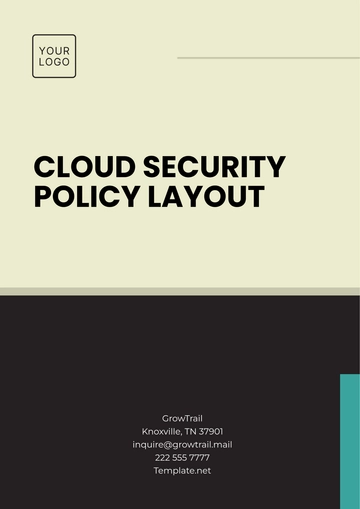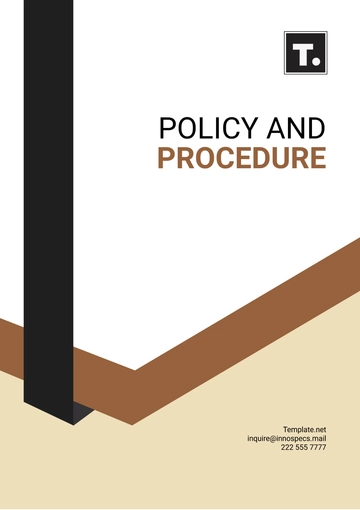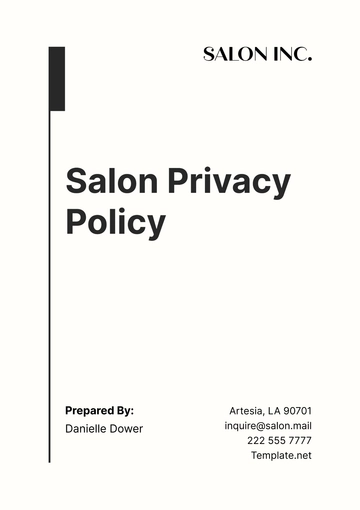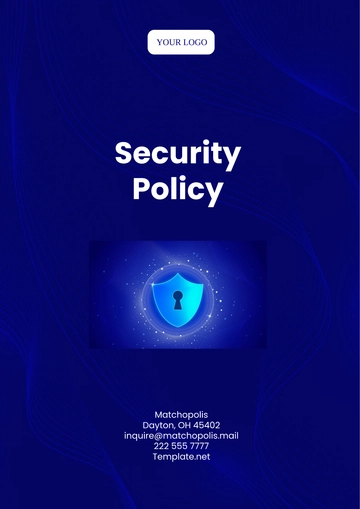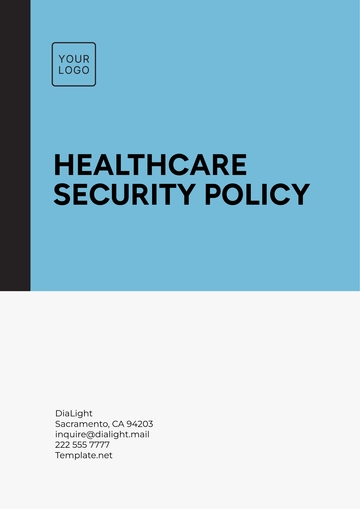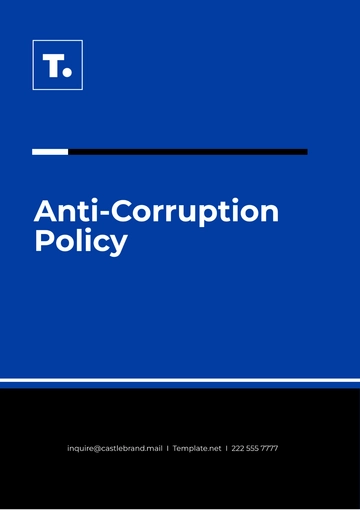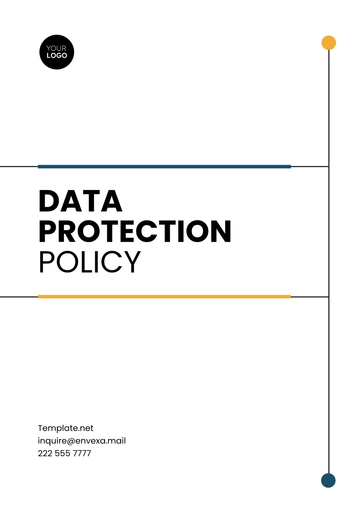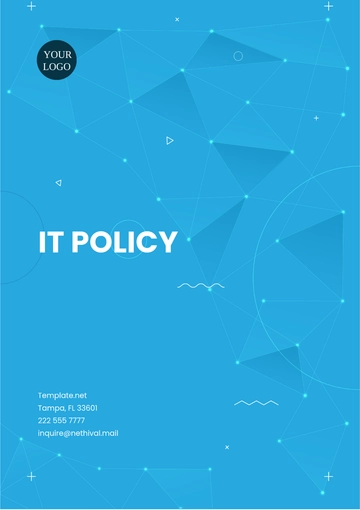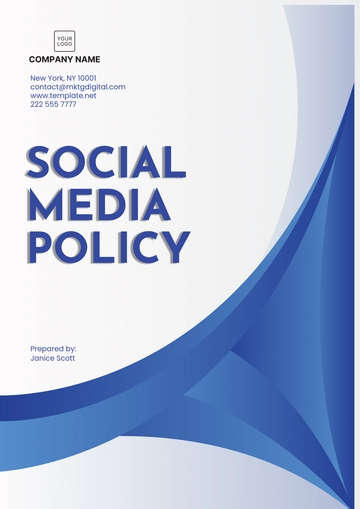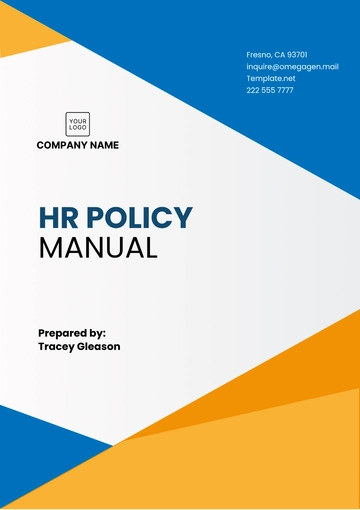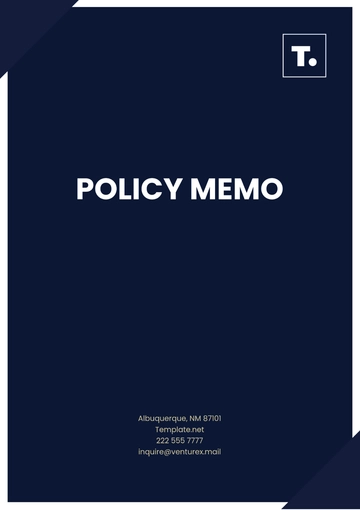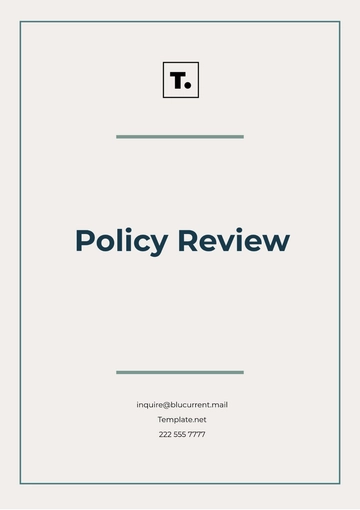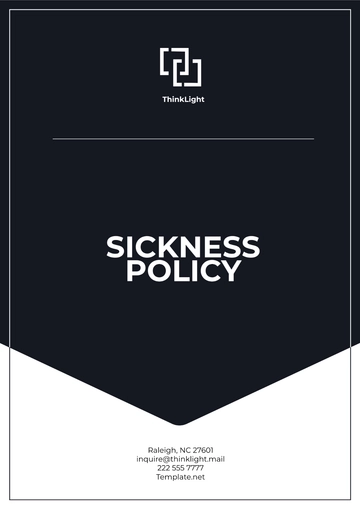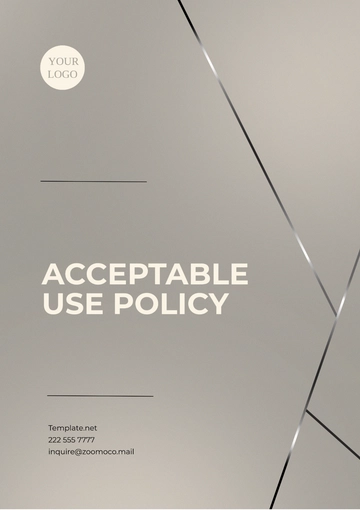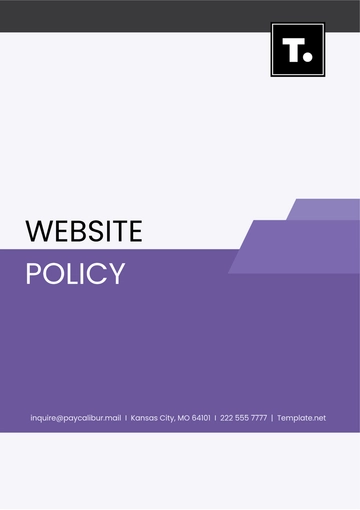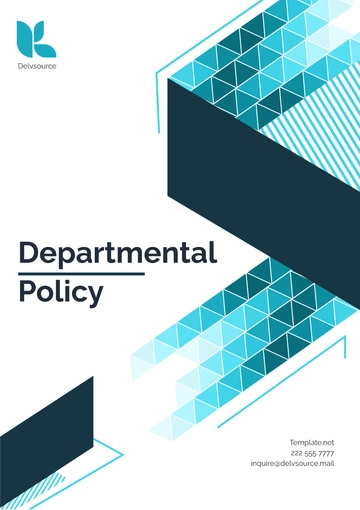Free Administration Office Parking Allocation Policy
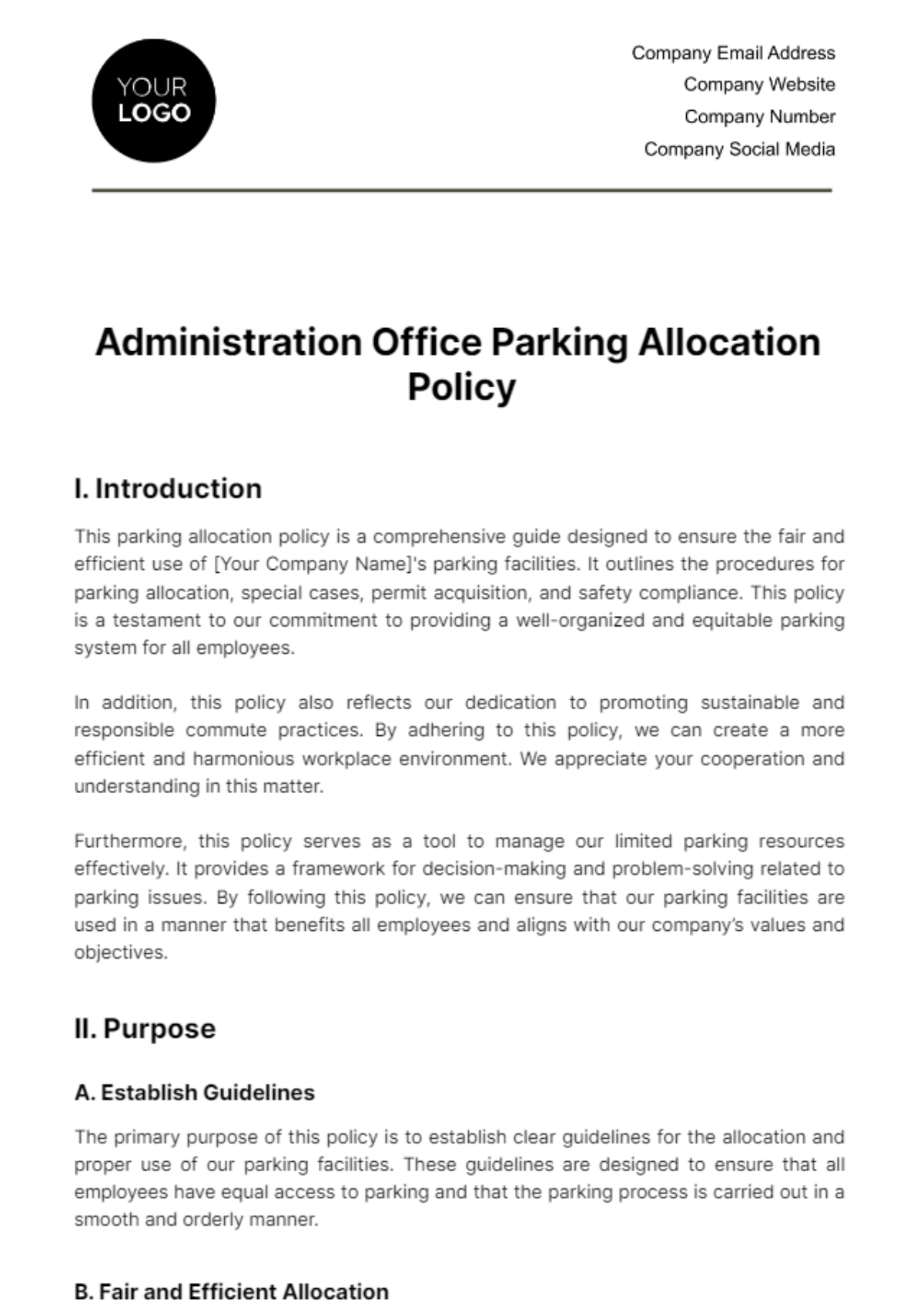
I. Introduction
This parking allocation policy is a comprehensive guide designed to ensure the fair and efficient use of [Your Company Name]'s parking facilities. It outlines the procedures for parking allocation, special cases, permit acquisition, and safety compliance. This policy is a testament to our commitment to providing a well-organized and equitable parking system for all employees.
In addition, this policy also reflects our dedication to promoting sustainable and responsible commute practices. By adhering to this policy, we can create a more efficient and harmonious workplace environment. We appreciate your cooperation and understanding in this matter.
Furthermore, this policy serves as a tool to manage our limited parking resources effectively. It provides a framework for decision-making and problem-solving related to parking issues. By following this policy, we can ensure that our parking facilities are used in a manner that benefits all employees and aligns with our company’s values and objectives.
II. Purpose
A. Establish Guidelines
The primary purpose of this policy is to establish clear guidelines for the allocation and proper use of our parking facilities. These guidelines are designed to ensure that all employees have equal access to parking and that the parking process is carried out in a smooth and orderly manner.
B. Fair and Efficient Allocation
The second purpose of this policy is to ensure a fair and efficient allocation of parking spaces for all employees. This is achieved through a first-come, first-served system, which ensures that all employees have an equal opportunity to secure a parking space.
C. Promote Sustainable Practices
The third purpose of this policy is to promote sustainable and responsible commute practices within [Your Company Name]. By encouraging carpooling and the use of electric or hybrid vehicles, we aim to reduce our carbon footprint and contribute to environmental sustainability.
III. Scope
This policy applies to all individuals associated with [Your Company Name], including but not limited to:
A. Temporary Employees
These are individuals who are employed on a short-term basis. They may be working on a project or filling in for a regular employee. Despite their temporary status, they are still required to adhere to this policy when using the parking facilities.
B. Part-time Employees
These are individuals who work fewer hours than full-time employees. They may have flexible schedules or work only a few days a week. Regardless of their work hours, part-time employees are also subject to this policy.
C. Full-time Employees
These are individuals who are employed on a long-term basis and work the full number of hours per week as defined by [Your Company Name]. As regular users of the parking facilities, full-time employees are expected to comply with this policy at all times.
IV. Policy Statement
A. Parking Allocation
Parking spaces will be allocated to employees based on a first-come, first-served basis. To ensure equitable access to all, the following procedures will be followed:
Allocation Process: The allocation of parking spaces will be done on a first-come, first-served basis. This system is designed to provide equal opportunities for all employees, regardless of their position or tenure within the company. Employees are encouraged to arrive early to secure a parking spot. This not only ensures that they get a spot, but also helps in maintaining a smooth flow of traffic during peak hours.
1.1. Early Arrival: Encouraging employees to arrive early helps in efficient allocation of parking spaces. It also reduces the chances of disputes over parking spaces.
1.2. Smooth Traffic Flow: Early arrival of employees can help in maintaining a smooth flow of traffic during peak hours. This can reduce congestion and make the parking process more efficient.
Unused Spaces: Any unused allocated parking spots at the end of each month may be re-allocated to other employees to ensure maximum utilization of our parking facilities. This process of re-allocation ensures that no parking space is left unused and everyone gets a fair chance to park their vehicles.
2.1. Re-allocation Process: The re-allocation process will be carried out at the end of each month. The Administration Office will keep track of unused parking spaces and re-allocate them as needed.
2.2. Maximization of Resources: The re-allocation process helps in maximizing the use of our parking resources. It ensures that every available space is used and none is left idle.
Dispute Resolution: In the event of a dispute regarding parking allocation, the Administration Office will have the final say. Our goal is to resolve any issues in a fair and transparent manner.
3.1. Reporting Disputes: Employees can report any disputes to the Administration Office. The office will then investigate the matter and make a decision based on the facts of the case.
3.2. Fair Resolution: The Administration Office is committed to resolving all disputes in a fair and transparent manner. All decisions will be made based on the facts of the case and in accordance with the guidelines outlined in this policy.
B. Special Cases
In line with our company’s commitment to inclusivity and environmental sustainability, special parking spaces will be reserved for:
Employees with Disabilities: These spaces will be clearly marked and located near the entrance for easy access. We understand the challenges faced by employees with disabilities and aim to make their commute to the office as convenient as possible.
Electric or Hybrid Vehicles: These spaces will be equipped with charging stations to encourage the use of environmentally friendly vehicles. By providing these facilities, we hope to contribute to the reduction of carbon emissions and promote sustainable commuting practices.
Visitor Parking: A certain number of spaces will be reserved for visitors to ensure we maintain a welcoming environment for guests. We believe in extending our values of fairness and efficiency to our visitors as well.
C. Parking Permits
All employees are required to obtain a parking permit from the Administration Office to use the parking spaces. The following rules apply:
Permit Requirement: No employee will be allowed to park without a valid permit. The permit must be displayed at all times when the vehicle is in the parking premises. This rule is enforced to ensure that only authorized personnel use the parking facilities.
Permit Application: Employees can apply for a parking permit at the Administration Office. The application process will be communicated to all employees. This process is designed to be simple and efficient, ensuring that employees can obtain their permits without any hassle.
Lost or Stolen Permits: Lost or stolen permits should be reported to the Administration Office immediately. A replacement permit will be issued after verifying the employee’s details. This procedure ensures that lost or stolen permits are deactivated promptly, preventing any unauthorized use.
D. Non-Compliance Consequences
Non-compliance with the parking allocation policy can lead to a series of consequences. These consequences are designed to enforce the policy and ensure that all employees adhere to the guidelines. The following table outlines the consequences for non-compliance:
Consequence | Description |
|---|---|
First Offense | The employee will receive a written warning. |
Second Offense | The employee will be fined. |
Third Offense | The employee’s parking privileges will be temporarily suspended. |
Further Offenses | The employee may face permanent revocation of parking privileges and other disciplinary actions. |
The consequences outlined in this policy are not just punitive measures, but they are also tools to educate employees about the importance of adhering to the parking policy.
First Offense is a written warning. This initial consequence serves as a formal notice to the employee, indicating that they have violated the parking policy. It’s an opportunity for the employee to correct their behavior and adhere to the guidelines moving forward. The written warning is documented and kept on record, serving as a reference point in case of future violations.
Second Offense, which is a fine, serves as a monetary penalty for repeated violations. The imposition of a fine underscores the seriousness of non-compliance and acts as a deterrent against future violations. The amount of the fine is determined based on the severity and frequency of the violations, ensuring that the penalty is proportionate to the offense.
Third Offense results in a temporary suspension of parking privileges. This is a significant penalty that disrupts the employee’s daily routine, making it clear that non-compliance with the parking policy has tangible consequences. The duration of the suspension is determined based on the nature and frequency of the violations, ensuring that the penalty is proportionate and fair.
Further Offenses may lead to permanent revocation of parking privileges and could also impact the employee’s standing within the company. This is the most severe consequence and is reserved for cases of chronic non-compliance. It sends a strong message about the company’s commitment to enforcing its policies and maintaining a fair and orderly parking system.
By understanding the potential consequences of non-compliance, employees are more likely to respect the policy and use the parking facilities responsibly. This, in turn, helps maintain a harmonious and efficient workplace environment.
V. Reporting and Investigation
A. Reporting Violations
All employees are encouraged to report any violations of the parking allocation policy. This can be done through a formal report or an anonymous tip. The following steps outline the reporting process:
Identification of Violation: Employees should first identify the violation. This could be a colleague parking in an unauthorized area, someone using a parking permit fraudulently, or any other violation of the parking policy. Identifying the violation is the first step towards maintaining the integrity of our parking system.
Documentation: Once the violation has been identified, employees should document the violation to the best of their ability. This could include noting down the time and location of the violation, the identity of the violator (if known), and any other relevant details. Proper documentation is crucial as it provides concrete evidence of the violation and aids in the subsequent investigation.
Reporting: After documenting the violation, employees should then report the violation to the Administration Office. This can be done via email, phone, or in person. If the employee wishes to remain anonymous, they can submit an anonymous tip. Reporting the violation ensures that the matter is brought to the attention of the appropriate authorities and can be dealt with promptly.
B. Investigation of Violations
Upon receiving a report of a violation, the Administration Office will conduct a thorough investigation. The following steps outline the investigation process:
Receipt of Report: The first step in the investigation process is the receipt of the report. The Administration Office will acknowledge receipt of the report and thank the employee for bringing the matter to their attention. This acknowledgement serves to reassure the employee that their report has been received and will be acted upon. It also sets the stage for a transparent and thorough investigation.
Preliminary Assessment: The Administration Office will then conduct a preliminary assessment to determine the severity of the violation and decide on the next steps. It also allows the Administration Office to gather additional information if needed and plan the detailed investigation.
Detailed Investigation: If the preliminary assessment indicates that a detailed investigation is warranted, the Administration Office will proceed with this investigation. This could involve reviewing CCTV footage, interviewing witnesses, and examining any relevant documents. This ensures that all aspects of the violation are thoroughly examined and that the findings are accurate and comprehensive.
Action: Based on the findings of the investigation, the Administration Office will take appropriate action. This could range from issuing a warning to revoking parking privileges or taking disciplinary action. The action taken will be proportionate to the severity of the violation and will serve to deter future violations.
C. Confidentiality and Non-Retaliation
The Administration Office is committed to maintaining confidentiality and ensuring non-retaliation. The following principles guide this commitment:
Confidentiality: The Administration Office will keep the identity of the reporting employee confidential to the extent possible. This is to protect the employee from any potential backlash. Confidentiality is crucial in encouraging employees to report violations without fear of reprisal.
Non-Retaliation: The Administration Office will not tolerate any form of retaliation against employees who report violations. Any employee found to be engaging in retaliation will be subject to disciplinary action. This non-retaliation policy ensures that employees can report violations without fear of adverse consequences.
Protection: The Administration Office will take steps to protect employees who report violations. This could include offering support and resources, ensuring fair treatment, and monitoring the workplace for any signs of retaliation. These protective measures are designed to create a safe and supportive environment for employees to report violations.
VI. Policy Review
This policy is not a static document, but a dynamic one that evolves over time to meet the changing needs and circumstances of our company and employees. Regular reviews of this policy are crucial to ensure its continued relevance and effectiveness. These reviews provide an opportunity to assess the policy’s impact, identify any issues or gaps, and make necessary adjustments.
The policy will be reviewed every five years or more frequently if necessary. The next review is due in [Month Year]. During the review process, we will consider feedback from employees, observe the current usage of the parking facilities, and evaluate the fairness and efficiency of the parking allocation process. Changes to the policy will be communicated to all employees in a timely manner. This ensures that everyone is aware of the latest guidelines and can comply with them. The review process underscores our commitment to maintaining a fair and efficient parking system for all employees.
For any matters related to this policy, you may reach out to [Your Company Name] at [Your Company Email].
Policy Number: P202671
Effective Date: [Month Day, Year]
- 100% Customizable, free editor
- Access 1 Million+ Templates, photo’s & graphics
- Download or share as a template
- Click and replace photos, graphics, text, backgrounds
- Resize, crop, AI write & more
- Access advanced editor
This Administration Office Parking Allocation Policy Template is a comprehensive solution brought to you by Template.net! This template is editable with our AI Editor Tool, providing an efficient way to allocate parking spaces. This resource is also fully customizable, ensuring fair and efficient use of available resources! Grab your copy!
You may also like
- HR Policy
- Restaurant Policy
- Company Policy
- Accounting Policies and Procedures
- Website Policy
- Privacy Policy
- Safety Policy
- School Policy
- IT and Software Policy
- Law Firm Policy
- Construction Policy
- Interior Design Policy
- Travel Agency Policy
- Education Academic Policy
- Security Policy
- Real Estate Policy
- Expense Policy
- Software Policy
